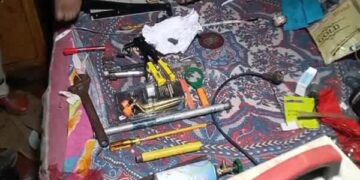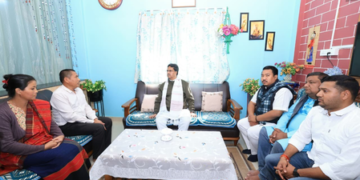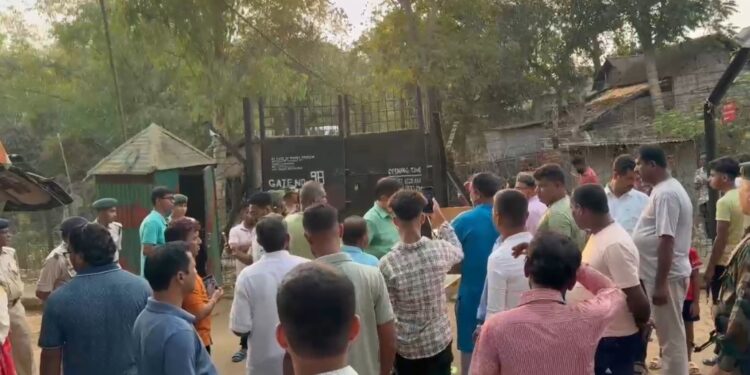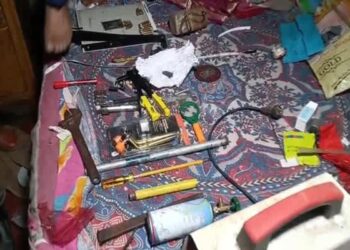Agartala, April 1: A day after a Tripura Pradesh Congress delegation, led by state president Asish Kumar Saha, visited the Motinagar area along the India-Bangladesh border in Sepahijala district and met families residing outside the barbed-wire fencing, senior Congress MLA Sudip Roy Barman raised the issue in the state assembly on the concluding day of the Budget Session.
He demanded proper rehabilitation for these families and urged the government to refrain from disconnecting their electricity supply, terming such actions a violation of human rights.
Raising the matter during Zero Hour, Roy Barman highlighted reports of power disconnections in the area, stating that while the opposition had no objections to the relocation of these families within the fenced territory, it was imperative to first provide them with alternative housing, burial grounds, and essential services such as electricity and potable water.
“If the Union Home Ministry has taken any decision regarding their rehabilitation, we have no objections. However, it is unacceptable that power connections to their homes were suddenly severed. These families have lived beyond the barbed wire fence near the 98th border pillar in Matinagar for over 150-200 years, even before many of us were born,” he said.
The Congress leader strongly criticized the treatment meted out to these families, alleging that they were subjected to inhumane restrictions on basic commodities and movement. “Every household there receives only limited rations of soap and sugar, as if they are smugglers. They are treated worse than dogs. This is an unimaginable human rights violation,” he added.
Roy Barman called for strict action against officials involved in the power disconnections if they were not executed under a directive from the Home Ministry.
Chief Minister Manik Saha, who also heads the Home portfolio, responded by acknowledging that 75 families live outside the barbed wire fence at Matinagar.
He stated that 31 of these families were allocated Pradhan Mantri Awas Yojana-Gramin (PMAY-G) houses inside the fence in 2018, but they refused to relocate.
“These families were allotted houses, but they never moved in. Among them, 31 applied for electricity connections, but many others were using illegal hook lines. Seventeen households paid their bills regularly, while 14 did not. Around 60 percent of them were consuming electricity illegally, which is why their power was disconnected,” said CM Saha.
Meanwhile, the Tripura Pradesh Congress Committee (TPCC) submitted a deputation to the Tripura Human Rights Commission, condemning the power disconnections.
Congress spokesperson Prabir Chakraborty, after submitting the letter to the Tripura Human Rights Commission, alleged that the families living outside the barbed-wire fencing are from minority communities and that what is being done is a clear case of human rights violation and unnecessary humiliation in the name of border guarding by the border guards, besides disconnecting their electricity supply.
Adding to the political pressure, Leader of Opposition and CPIM legislator Jitendra Chaudhury had earlier urged CM Manik Saha to address the plight of these border families.
He sought the state government’s intervention in providing them with rehabilitation, drinking water, education facilities, and other basic services.
The situation continues to spark political debate, with both opposition parties pressing the government to act swiftly in addressing the grievances of families stranded outside the barbed wire fencing along the Indo-Bangladesh border.








































